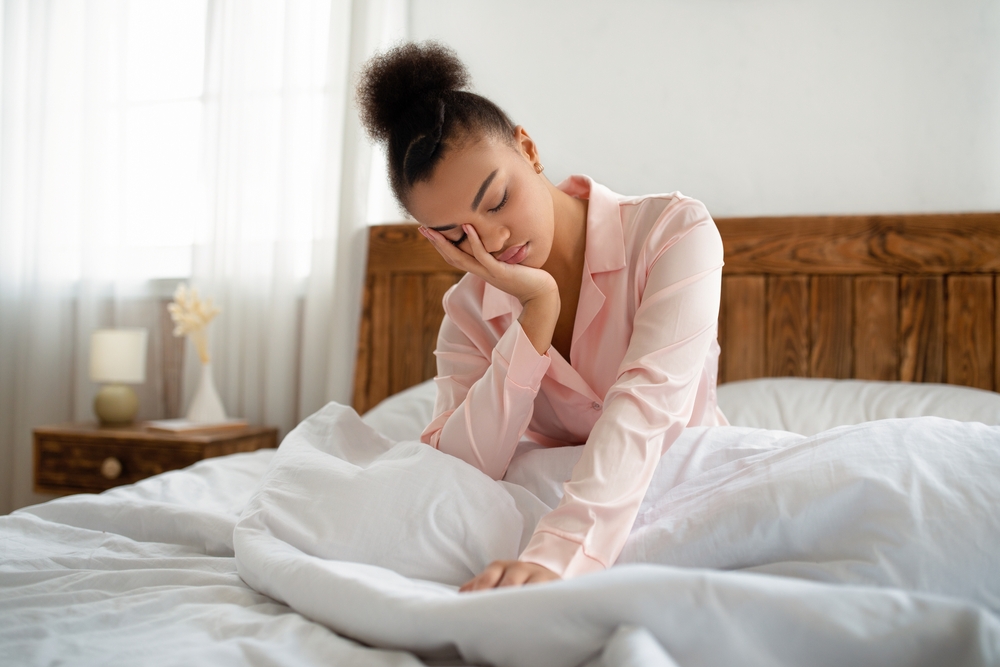How Does Sleep Affect Your Mental Health

A good night’s sleep is a crucial part of our everyday lives. From making you feel energised to helping you perform at your best, the quality of your sleep affect your mental health. We know that a great night’s sleep isn’t a cure for mental health conditions.
But exercising regularly, investing in your rest and introducing healthy sleep habits are just some of the positive changes you can make to help improve your mood.
From tips on how to improve your sleep habits to understanding the benefits of our Premier Inn bedding, we hope this article can offer some helpful advice and suggestions to help you sleep – and feel – better.
Why Does Sleep Affect Your Mental Health?
Sleep is essential for all of us – it helps our bodies and minds recharge to tackle another day. This happens through the four stages of sleep, all of which work to gradually restore mental clarity and improve moods. Each of the stages tackles different parts of the brain and associated activities, including rational thinking, the ability to learn and retain new information, and memory strength. When a sleep stage is missed and these areas can’t properly recharge, there’s a high chance that your performance will suffer as a result.
Have you ever noticed that your sleep can suffer when you’re away from home? Some people find it hard to relax in a new environment, which means they won’t cycle through the four sleep stages properly. When you don’t sleep well, the mind is essentially unable to process information as intended, which can have negative side effects ranging from impacted moods to compounding existing mental health issues.
One bad night’s sleep can leave you feeling groggy and irritable, but consistently bad sleep can lead to the brain becoming overwhelmed.
What Are the Mental Health Effects of Not Having Enough Sleep?

Lack of sleep has a big impact on mental health, causing short term issues and worsening long term conditions.
With certain conditions such as anxiety and depression, poor sleep results in a lack of energy for daily tasks. It also creates a negative loop – you feel low and stressed about your lack of sleep, which makes it harder to actually rest each night. Poor sleep could also mean that magnesium levels are low.
For people who suffer from seasonal affective disorder (SAD), an interruption in sleep cycles can mimic the intense feeling of change that comes with a new season. This can lead to similar symptoms at any time of the year. Poor sleep quality can also make SAD issues worse as it can lead to a long-term disruption to the natural body clock.
Concentration-based mental health conditions such as ADHD also suffer from poor sleep. Not only can individuals find it harder to sleep, but behaviour and attention spans are also impacted.
In all these cases and more, sleep is essential for improving your mood and performance. The longer you continue to sleep poorly, the harder the issue will be to fix.
How Much Sleep Is the Right Amount to Get Each Night?
As well as understanding some top tips for sleep wellbeing, it’s handy to know just how much sleep you should be getting too.
For adults to go through all four sleep stages every evening, between seven and nine hours of sleep is recommended. This is generally considered a healthy amount of sleep for performing at your best and improving your mental health.
Methods to Improve Sleep for Better Mental Health
From investing in quality bedding with our Premier Inn bundles to introducing healthy habits every evening, here are some tips that can help you improve your sleep, and your mental health as a result. So, whether you’re on the hunt for ways to wind down after a stressful day or you’re looking for expert sleep tips for kids, keep reading!
Introduce Positive Sleep Habits
One of our top tips for how to fall asleep fast and get a quality night’s rest is to stick to a relaxing evening routine, including limiting your screen time, choosing sleepy drinks, not eating dinner too late and sticking to a similar bedtime each night. By telling your mind that it’s time to rest, you’re giving your body a better chance of achieving it.
Create the Perfect Sleep Experience
Another tip to optimise sleep is to get the environment right. From pillows with the right firmness to a comfortable mattress and a sturdy bed, revitalising your bedroom can really improve your mental and physical health. The right bedding can help you stay comfy through the night and regulate body temperatures too.
Be Mindful of Your Mental Health
Understanding yourself and your mental health isn’t always easy. A good night’s sleep can make you feel better, but we know it isn’t a cure for long term conditions. Our comfy beds can help improve your sleep, but if you feel like you need more support with your wellbeing, make sure you reach out to medical professionals.
How Can Premier Inn at Home Bedding Improve Sleep Quality?

We’ve designed our Premier Inn bedding to help you get the best rest and to support your physical and mental health. From our luxurious pillows that help you get a great night’s sleep to our quality mattress protectors, everything’s been designed with rest in mind.
Mental health isn’t something that can be cured by one good night’s sleep, but investing in your rest can make a big difference in the long run. Read more of our expert sleep tips about the gift of sleep before exploring our collection. By getting the right amount of quality sleep, we hope that you’ll start to feel just that little bit better night after night.



